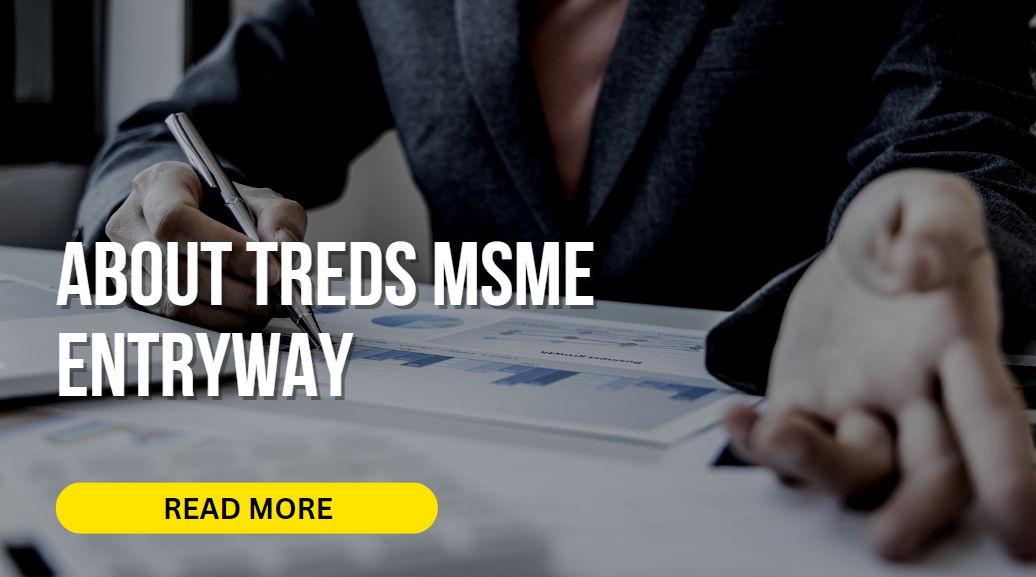Comprehend normal inquiries on what is TReDS. MSMEs with udyam registration certificate that have previously enlisted through Udyam Enrollment are asked to do as such through the TReDS site.
Organizations can limit their solicitations and receivables utilizing the Exchange Receivables Limiting Framework (TReDS), a web-based apparatus. Organizations should enlist under the Udyam Enrollment program to exploit the framework’s advantages. A framework of what TReDS is, who can enlist for it, and how it can assist organizations with willing be given in this article.
What is TReDS?
TReDS represents Exchange Receivables Limiting Framework. An electronic stage empowers MSMEs to get their bills limited at cutthroat rates through various agents, subsequently giving them better admittance to working capital. TReDS assists MSMEs with getting installments for their solicitations as soon a possible, and simultaneously, gives a valuable chance to lenders to put resources into the MSME area.
MSMEs enlisted under Udyam Enrollment are mentioned to enlist under the TReDS entrance to profit the advantages of the stage. By enrolling on TReDS, MSMEs can speed up their income and diminish their reliance on expensive bank finance. TReDS is a drive of the Save Bank of India (RBI) to advance supporting of exchange receivables of MSMEs from corporate purchasers through numerous agents.
TReDS is a significant drive for MSMEs, especially in times when opportune installments are basic for their endurance and development. MSMEs enrolled under Udyam Enlistment can benefit essentially from TReDS by getting to supporting at cutthroat rates and improving their monetary manageability.
The Exchange Receivables Limiting Framework (TReDS) is an electronic stage that makes it simpler for Miniature, Little and Medium-Sized Organizations (MSMEs) to fund their exchange receivables through different banks. An association under RBI guideline assists MSMEs with funding their receivables at reasonable rates. TReDS gets rid of the need for manual information and paper bills.
MSMEs who have proactively enlisted with Udyam Enrollment are approached to do as such with TReDS.
As per a new notice from the Service of Money, all Miniature, Little and Medium-Sized Organizations (MSMEs) who are enrolled with Udyam Enlistment should pursue the Exchange Receivables Limiting Plan (TReDS). MSMEs can fund their receivables at cutthroat rates by means of this internet based stage, which is heavily influenced by the RBI. TReDS gets rid of the need for manual info and paper bills.
You can make use of the Udyam Registration platform to register an Udyam Registration whether you wish to create a tiny, medium, or large business. You can enrol in udyam using the consultancy’s udyam enrollment website. The udyam certificate is easy to get and print. The Ministry of MSME has introduced a new method for updating the Udyam Registration Certificate. Researchers are here to assist businesses in modifying, changing, or update udyam registration certificate.
What does TReDS expect to accomplish?
By limiting their exchange receivables, firms can get finance with the assistance of the Exchange Receivables Limiting Framework (TReDS), an internet based stage. The Save Bank of India (RBI) presented TReDS in August 2016 determined to resolve the issue of working capital money for little and medium-sized organizations (SMEs).
Who may essentially enlist for TReDS?
Each organization that has finished the Udyam Enlistment program is qualified to enroll on TReDS. Organizations can start transferring solicitations to the stage and applying for funding from accomplice monetary foundations whenever they have enrolled.
Who is expected to enroll for TReDS?
You should pursue TReDS on the off chance that your firm is enrolled under Udyam Enlistment. This will give you admittance to the Exchange Receivables Limiting Framework (TReDS), an online instrument for overseeing exchange receivables for firms. By joining with TReDS, you can speed up your receivables in the executives system and get close enough to fund at additional great rates.
How might I just enlist for TReDS?
An internet based instrument called the Exchange Receivables Limiting Framework (TReDS) makes it simpler for MSMEs to back their exchange receivables through various monetary organizations.
To enlist on the TReDS stage, a MSME should be enrolled under the Udyam Enrollment Plan. Basic web-based enlistment is accessible for this occasion.
By pursuing a record on the TReDS stage, you can list your solicitations and solicitation quotes from different monetary organizations. A short time later, you can choose the best proposal to quickly and basically store your solicitations. Any little miniature and medium undertakings can apply for udyam declaration and nitty gritty task report for bank credit.
What benefits accompany pursuing TReDS?
All MSMEs who are enrolled under Udyam Enlistment are encouraged to enlist under TReDS as per RBI rules. Coming up next are the critical benefits of joining TReDS:
It helps organizations in getting finance from monetary associations at sensible costs.
It offers a stage for organizations to safely and really trade solicitations with purchasers and dealers.
By empowering brief installments, it helps organizations in better working capital administration.
In general, it helps firms in bringing down their monetary costs and dangers connected with money due.
Conclusion
The TReDS stage is a gift for small and medium organizations, which much of the time experience difficulty getting working capital. TReDS vows to make the money cycle impressively less complex by offering a protected and successful internet based stage for organizations to cooperate with loan specialists.
We might expect to increment competition among lenders as additional organizations join on the stage, which will prompt better rates and terms for borrowers. All udyam certificate approved firms are encouraged to pursue TReDS and make the most of this superb open door.






